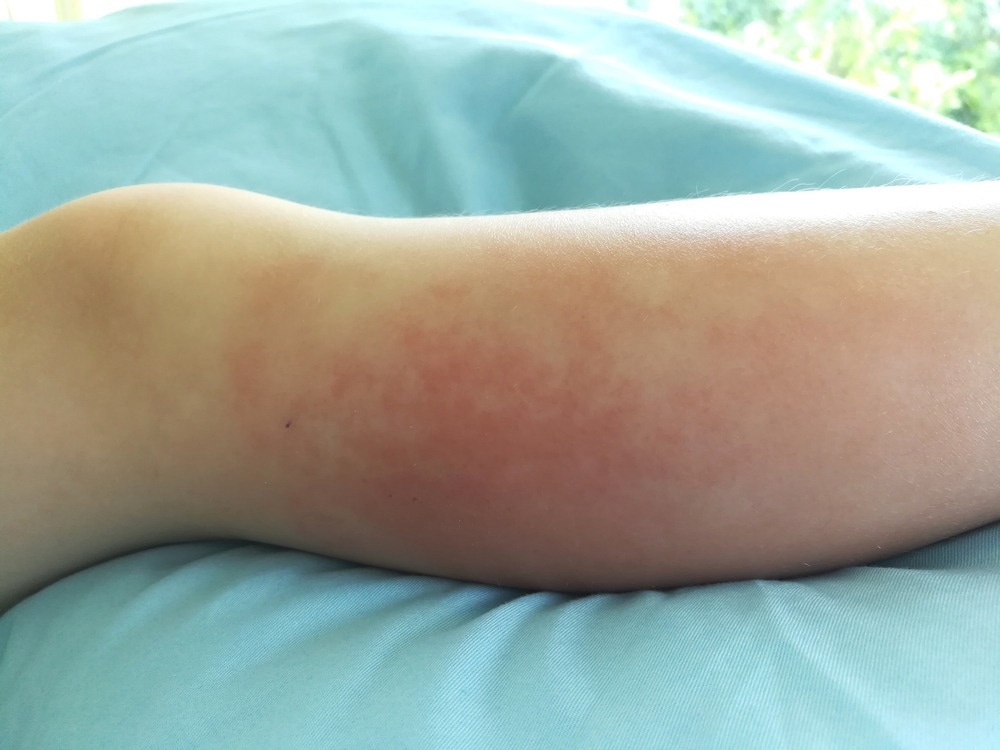In a recent study published in the International Journal of Infectious Diseases, researchers described two cases of human monkeypox (MPX) and deep skin infection.
 Study: Monkeypox infection and bacterial cellulitis: a complication to look for. Image Credit: DonyaHHI/Shutterstock
Study: Monkeypox infection and bacterial cellulitis: a complication to look for. Image Credit: DonyaHHI/Shutterstock
Background
Human MPX is a zoonotic disease caused by the MPX virus. MPX is endemic to some African countries, with a few outbreaks outside the continent before 2022. MPX is characterized by rash, fever, and lymphadenopathy. Most patients present with moderate symptoms not requiring antiviral treatment or hospitalization. Nevertheless, some commonly described complications are encephalitis, pneumonitis, keratitis, deep tissue MPX abscess, and secondary bacterial infections.
The World Health Organization has declared MPX a public health emergency of international concern, given the high number of cases since May 2022. There were 588 MPX cases in Portugal until July 25, 2022, with a suspected sexual transmission mode. The present study described cellulitis as a complication of MPX in two patients.
Findings
One patient aged 34 was a male with Fitzpatrick phototype III skin. Previously, the patient was diagnosed with human immunodeficiency virus (HIV) infection and type 1 diabetes mellitus. The subject had no history of international travel in the past three months. The patient complained of painful skin lesions, sore throat, and fatigue. The subject reported having 18 unprotected casual sexual contacts with men in the past 30 days.
On observation, an umbilicated papule was found in the suprapubic region. There were no other oral/skin lesions at the time. The investigators also observed inguinal centimetric lymphadenopathy. Swab samples were collected from the oropharynx and genitalia. The subject tested negative for hepatitis A, B, and C, syphilis, herpes simplex virus 1/2 infection, and Neisseria/Chlamydia infection.
Eleven days after disease onset, the patient was hospitalized with edema, inguinal erythema, and local pain at the site of lymphadenopathy, compatible with inguinal and pubic cellulitis. Laboratory investigations revealed elevated C-reactive protein (CRP) levels without changes in lymphocyte count. The patient was started on oral flucloxacillin with clinical symptoms and cellulitis resolving after six days.
The second patient was a 35-year-old male with Fitzpatrick phototype IV skin. Previous medical history included antiretroviral treatment for HIV. The patient had no travel history in the past three months. The subject had three sexual contacts with men in the past 30 days. The patient presented with fatigue, skin lesions, and headache. Upon examination, there were disseminated papules and pustules on the face, trunk, perianal and genital areas.
Six days after symptom onset, the patient was hospitalized for observation with edema, penile erythema, and pain compatible with cellulitis. Similarly, the patient had no changes in lymphocyte count but exhibited increased CRP. Clinical improvement with the resolution of cellulitis was observed seven days after treatment with oral flucloxacillin.
Conclusions
Treatment for MPX is recommended during severe disease, for at-risk patients, and those with multiple complications. Because the two patients had less severe disease presentation, the team opted for a conservative approach to monitor disease progression. Although deep skin infections are uncommon during MPX, the progression of skin lesions with ulceration could generate entry portals for bacteria.
The authors posit that skin infections caused by bacteria are under-reported in MPX patients, which might lead to increased morbidity. Based on the empirical evidence, they suggested using topical antibiotics for ulcerations in patients with genital/perianal lesions and those with an increased risk of skin infections.